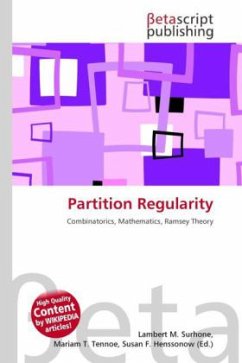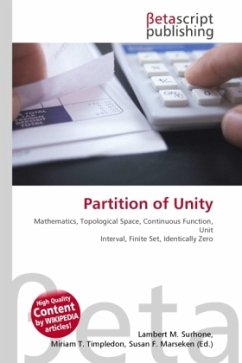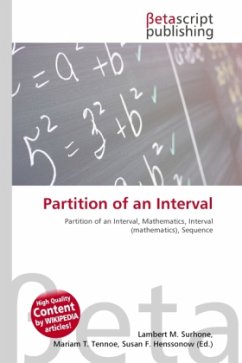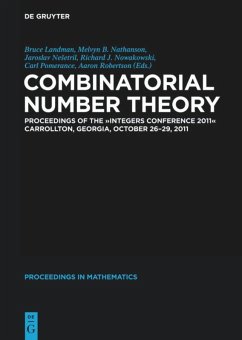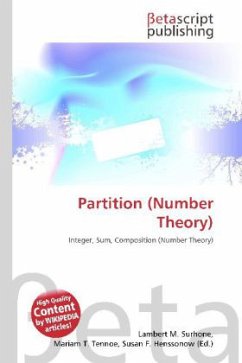
Partition (Number Theory)
Versandkostenfrei!
Versandfertig in 6-10 Tagen
30,99 €
inkl. MwSt.

PAYBACK Punkte
15 °P sammeln!
Please note that the content of this book primarily consists of articles available from Wikipedia or other free sources online. In number theory, a partition of a positive integer n is a way of writing n as a sum of positive integers. Two sums that differ only in the order of their summands are considered to be the same partition; if order matters then the sum becomes a composition. A summand in a partition is also called a part. The number of partitions of n is given by the partition function p(n). They occur in a number of branches of mathematics and physics, including the study of symmetric...
Please note that the content of this book primarily consists of articles available from Wikipedia or other free sources online. In number theory, a partition of a positive integer n is a way of writing n as a sum of positive integers. Two sums that differ only in the order of their summands are considered to be the same partition; if order matters then the sum becomes a composition. A summand in a partition is also called a part. The number of partitions of n is given by the partition function p(n). They occur in a number of branches of mathematics and physics, including the study of symmetric polynomials, the symmetric group and in group representation theory in general.







